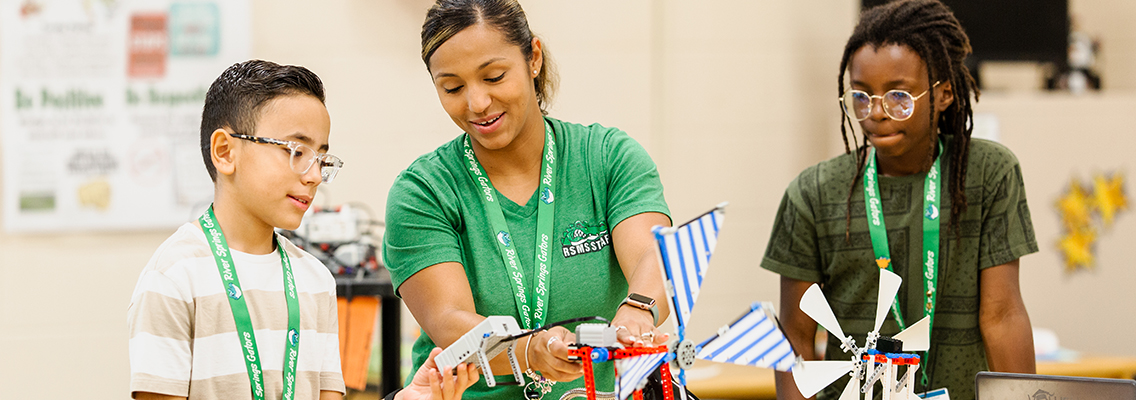Free Education Resources
At FIRST®, we believe STEM is for everyone, and there's no better to way to make learning fun and relevant for students than with robotics. Find engaging ways to expand student STEM knowledge with free FIRST activities, camp guides, Kahoot content and more below.
Robotics Engineering Exploration Curriculum
FIRST is pleased to introduce a new introductory robotics engineering explorations 90 hour course for grades 7-12. Using FIRST® Tech Challenge or FIRST® Robotics Competition materials, this curriculum explores concepts of the engineering design process, engineering in our society, safety, building a robot, and computational thinking while aligning to various national standards.
STEM Activity Series
Explore our flexible learning activities that cover a variety of age-appropriate STEM topics for students PreK-12. These engaging activities can be used by anyone to introduce STEM learning using materials found at home or in learning environments.

FIRST Kahoot!
The FIRST and Kahoot! partnership leverages the fun platform of Kahoot! with amazing content from FIRST. Explore our launch series topics such as FIRST Core Values, Robotics, Computational Thinking, and more! We will launch new content every few months so be sure to subscribe to the FIRST community on our Kahoot page to stay tuned for updates.
FIRST Camp Guides
If you’re looking to implement fun STEM programming for students during a camp, our FIRST Camp Guides can help you introduce campers to the fascinating and technical world of robotics using FIRST LEGO League or FIRST Tech Challenge materials. Campers will work together to complete activities that will challenge them to think critically and grow their understanding of coding and programming.
FIRST Implementation Resources
Scope & Sequence Options
Variations of student learning support for FIRST® LEGO® League divisions. From 10 hours to 80 hours, you'll find a corresponding list of sessions and additional FIRST® and LEGO® Education resource. Click on the + below to see options.
This curriculum is designed to fit many career and technical education programs as an intro to engineering design course, but it can be modified and implemented at many different levels.
The scope and sequence table lists minimum and maximum time limits for each unit and identifies their priority for students to be able to complete the semester and end-of-course activities.
Skills Progression
The FIRST Technical Learning Progression PreK-12 Summary outlines the student learning that occurs when students participate in FIRST. Whether a student progresses through the various programs or experiences only one, these progressions demonstrate the age-appropriate outcomes, knowledge, and skills students learn as part of a FIRST program.
These learning progressions outline the differences in student learning outcomes by grade level and can be used to validate or assess that students demonstrate age-appropriate outcomes, knowledge, and skills.
- FIRST® LEGO® League Discover, Grades PreK-1
- FIRST® LEGO® League Explore, Grades 2-4
- FIRST® LEGO® League Challenge, Grades 4-8
Standards Alignments
FIRST® content is aligned to the following:
- Common Core - Math & English Language Arts
- NGSS – Next Generation Science Standards
- CSTA – Computer Science Teachers Association
- ITEEA – International Technology Engineering Education Association
- ISTE – International Society for Technology in Education
- Partnership for 21st Century Learning
- CASEL – Collaborative for Academic, Social and Emotional Learning
Click on the + to see how FIRST content is aligned to each standard.





